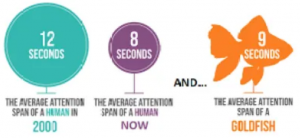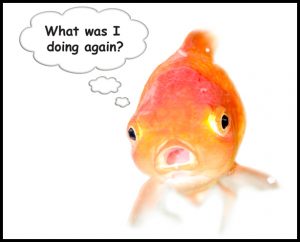 Your attention span is a reliable indicator of how well you’ll do in life
Your attention span is a reliable indicator of how well you’ll do in life
If you are not where you want to be, one possible way you can improve your lot is by increasing your attention span.
Most people have a lot of aspects to their behavior and thinking that are at odds with being happy, successful, joyful people.
A whole lot. I measure most in my Starting Point Measurements.
So the natural inclination is to declare it hopeless. And the second natural inclination is to want to handle it all at once.
This is when people spend a lot of money in one sitting… and then don’t know what to do with them.
And some people, the rare specimen, who asks: how should I start? What shall I do first?
 The culture we live in doesn’t talk about the order of things, that there is one thing and then the next…
The culture we live in doesn’t talk about the order of things, that there is one thing and then the next…
Seemingly everyone is doing everything at the same time… but it’s not so.
I have students who want to be their own bosses, and own a business. They have no foundation, so the question they ask: what business should I start is putting the cart in front of the horses… Instead they need to ask the question: how do I learn business?
And, it seems, even if someone has an MBA, which kind of suggest that they learned business, business is a lot more than what you can learn in a course, no matter how comprehensive it seems.
I have a brother, a lot smarter than me, who has an MBA. After amassing a fortune in foreign postings, he decided that he was ready to hang out his own shingle… but he knew nothing about business… so he closed shop and rejoined employee heaven…
When back in 1988 or so I decided to build a publishing empire, I learned printing, I learned typesetting, but had no idea that what makes a business is sales.
I was lucky, and I was hired to sell advertising… And once I was good at that, then i could start a publishing business.
 Without sales there is no business… And if you are not the sales person of your business, that it is not YOUR business, because when the sales ‘partner’ leaves, he leaves with your business.
Without sales there is no business… And if you are not the sales person of your business, that it is not YOUR business, because when the sales ‘partner’ leaves, he leaves with your business.
When the owner of the magazine I sold advertising for kicked me out, I took half of his business… and next day I was in business that actually broke even, maybe even made a small profit, enough to get by till the next issue of the magazine I started.
Later the same scenario repeated itself with another salesperson, and the one time owner of that magazine was out of business.
So just like business, life is layered like that.
So what do you need to cultivate first, that is the foundation of a life well lived, but also the foundation of your success in conquering all those ways you are, behave, think, that don’t serve you and keep you at low vibration?
In my not so humble opinion it is taming your attention, wrestling it under your own command.
I always say that my life turned around in 1996. But I never pinpointed it before: it was my attention training, masquerading as eye training that did it.
I became a whole new person… even though the series of misfortunes, illness, dead end-like sideways didn’t stop…
There is no one move that sets you on a straight path… don’t even dream about it.
Clarity, real clarity is hard to come by. Forced clarity isn’t clarity… it is violence.
 So how do you tame your attention?
So how do you tame your attention?
I am going to first share my practices… I still practice it every day. And then I’ll share a video, and an article of some methods I can see that can work.
- 1. To be able to fall asleep, I need to relax all the muscles in my body… instead of letting my mind hijack my attention and keep me awake. I start with my jaw muscle, then other muscles in my face.
Most night I am not successful, but that doesn’t stop me from using this method to train my attention
- 2. Also at bedtime: I have a projecting clock, that projects the time onto the ceiling. I keep my attention on the projected number, tracking the pass of time, and whenever my attention wonders, I bring it back. I can sustain 15 minutes of that.
- 3. I added integrity into my work and reading: when my attention wonders, I catch it and take a few breaths. If I can, I walk around, turn off the kindle, or take a drink. If it is not politically correct, like I am on a call, I just return my attention… and maybe say: please say that again, if it is appropriate.
- 4. This is not something I have to do any more, but this is the easiest method, I think. Read, not for understanding, not for enjoyment, but to train your attention. Learn to notice that it wandered, and gently return it.
The secret of all this is the noticing that it wondered: self-awareness. If you use the Big Bundle Consciousness will tell you…
The secret is to notice and not hide it. Not fight it. Not force it. Just be gentle… Forcing is violence. If you find yourself forcing, your predatory genes may be still too high or too low. Ideal is 3. But some people can be violent even with 3… 🙁
- 5. Studying any of my programs. The number: how much gets through to you, depends on your attention AND on your resistance to feedback or anything. The cheapest and hardest program is
 s, the way I ask you to do it: find the principles and document them. You can’t find the principles unless you pay attention… And thus you train your attention. Priceless for pennies.
s, the way I ask you to do it: find the principles and document them. You can’t find the principles unless you pay attention… And thus you train your attention. Priceless for pennies. - 6. Saying: there is a time to smell the roses, and that time is not now… I say that when every fiber of my being wants to do something more interesting than what I am doing.
- 7. I put my brain into theta mode… or if I can’t, into alpha mode. Theta mode I explain here… alpha mode is sticking and pressing the tongue flat against the roof of my mouth… This is also useful if you want to connect to your Tangerine spot in a hurry. They seem to be connected, the roof of your mouth and the Tangerine spot.
Before I forget: tomorrow and on Sunday I’ll hold the Thyroid and Panceras healing sessions…
If you are interested, this is your time to do something live with me.
This is how it will go: depending on how you connect to Source, with your Tangerine spot, or with the Big Bundle, you can participate in a live webinar. I’ll record the webinar, and cut out the actual energy work part, and post all that on the website… the same place I have the self-healing course…
You will be, then asked to do the healing work, 5-10 minutes, as often as you want to for as long as you want to.
If you are late to the party, don’t worry, you can buy the recording.
If you already have the Big Bundle, you can attend either or both sessions, and you’ll have access to both recordings.
I am not a machine, and most likely the sessions will be slightly different…
If you don’t know how this works, I recommend that you visit the sales page for my self-healing course and read it. The big difference since I wrote that sales page some 6 years ago, is today you can use the Big Bundle to keep you connected.
Either version is just 10 bucks… but don’t let the small price tag fool you. You’ll have to do all the work… and that is going to produce the value, not owning the recording.
Don’t buy if you can’t commit to use the energies, Please.
Make this your exercise to become a cause, to become a producer.
OK, here is the video
and the link to the articles with the studies:
- https://ideas.ted.com/4-simple-exercises-to-strengthen-your-attention-and-reduce-distractibility/
- https://www.artofmanliness.com/articles/your-concentration-training-program-11-exercises-that-will-strengthen-your-attention/
- https://www.theatlantic.com/health/archive/2013/09/how-to-rebuild-an-attention-span/279326/
And an excerpt from one of those articles…
1. Increase the strength of your focus gradually. If you decide you want to physically get in shape, but are starting at ground zero, the worst thing you can do is to throw yourself into an extreme training program – you’ll end up injured, discouraged, or both, and you’ll quit before you even really get started.
Likewise, if your attention span is currently quite flabby, it’s best to slowly build up the weight you ask it to lift. In this series we’ve mentioned trying the “Pomodoro Method” in which you work for, say, 45 minutes straight and then allow yourself a 15-minute break. But for many of us, 45 minutes might as well be a mind marathon!
So start out with a pretty easy goal and work your way up from there. Set a timer for 5 minutes and focus completely on your work/reading for that time period. Then take a 2-minute break before going at it again for another 5 minutes. Each day, add another 5 minutes to your focused work time, along with an additional 2 minutes to your break time. In 9 days, you should be able to work for 45 minutes straight before you allow yourself an 18-minute break. Once you get comfortable with that set-up, you can work to lengthen your focus sessions a little, while shortening your break times.
2. Create a distraction to-do list. Because the internet has made any bit of information instantly accessible, we tend to want to look something up the moment it crosses our mind. “I wonder what the weather will be like tomorrow?” “What year did that movie come out?” “I wonder what’s new in my Facebook feed?” Consequently, we’ll toggle away from what we’re working on the instant these questions or thoughts pop into our minds. Problem is, once we get distracted, it takes on average 25(!) minutes to return to our original task. Plus, shifting our attention back and forth drains its strength.
So to stay on task, whenever something you want to check out pops into your head, just write it down on a piece of paper next to you (or perhaps in Evernote for you tech types), and promise yourself you’ll be able to look it up once your focusing session is over and your break time has arrived.
3. Build your willpower. Voluntary attention and willpower are intimately entwined. Our willpower allows us to deliberately ignore distractions while staying focused on the task at hand. It would serve your attention span well to review our in-depth article on strengthening your willpower.
4. Meditate. Not only does meditation help keep you cool, calm, and collected, research has also shown again and again that mindfulness meditation can boost your attention span significantly.
In one study, 140 volunteers took part in an eight-week course in meditation training. After the eight weeks, all the volunteers showed measurable improvements in attention span, as well as other executive mental functions.
You don’t have to spend your days meditating in a monastery to take advantage of its attention-boosting power. Research has shown that just 10 to 20 minutes of meditation a day will do the trick. What’s more, you’ll even see improvements in your attention after just four days.
So if you want the power to focus on your studies for hours at a time, start your mornings off just focusing on your breath for a few minutes.
5. Practice mindfulness throughout the day. In addition to dedicating 10 to 20 minutes a day to mindfulness meditation, attention experts recommend finding opportunities to practice mindfulness throughout your day. Mindfulness is simply focusing completely on what you’re doing, slowing down, and observing all of the physical and emotional sensations you are experiencing in that moment.
You can practice mindfulness when you eat as you take time to really chew your food and concentrate on its flavors and texture. You can practice mindfulness when you shave; as you smell your shaving cream, note the pleasure of applying a warm lather to your face, and slowly drag the razor across your stubble.
Incorporating short sessions of mindfulness throughout your day will strengthen and expand your attention span for the times when you really need it.
Mindfulness can also help you push back against distractions as they arise. If you’re working on a task and feel that restless itch to go do something else, think to yourself, “Be here now.” In that moment, bring your awareness to your body and your breath. After a few seconds of focusing on your breath, you’ll notice that the distraction is no longer present and that you’re ready to get back to work.
6. Exercise (your body). Not only can you compare exercising your mind to exercising your body, doing the latter actually directly benefits the former. Researchers have found that students who engaged in moderate physical exercise before taking a test that measured attention spans performed better than students who didn’t exercise. The researchers found that exercise primarily helps our brain’s ability to ignore distractions, although they aren’t exactly sure why. I would venture to say that the discipline it takes to push through the pain of a workout strengthens the same supply of willpower that we use to ignore the itch of distractions in order to keep working/focusing.
7. Memorize stuff. We’ve talked about memorization on the site before. Besides being a cool bar trick and providing you a fount of poems to recite at the drop of a hat, memorizing stuff is an excellent way to exercise your mind muscles. Make it a goal to memorize a poem or a verse of scripture each week.
What About Attention Training Games?
Brain training games have received a lot of press in recent years. You’ve probably seen commercials for Lumosity or Brain Age on Nintendo DS. The games’ creators claim that spending just a few minutes a day playing can improve your attention, memory, and mental agility. However, the research on the veracity of these claims is divided.
Some studies indicate that brain training games can help improve attention in children with ADHD or in the elderly, but that they don’t benefit young, healthy adults.
Other studies show that while certain brain training games can boost attention levels, those gains don’t crossover to other areas of life. In other words, brain training games can help people pay better attention and do better at brain training games, but they won’t help people pay better attention in class or while studying.
A recent study showed a certain type of brain training game called n-back can improve working memory (an important aspect of attention) and that improvement can crossover to other cognitive challenges.
So what does this all mean? The verdict is still out on whether these brain games will definitively increase attention spans and further research needs to be done. It won’t hurt to try them out as part of your attention training program, but include the other suggestions outlined here as well.
8. Read long stuff slowly. Fight the TL;DR culture. With the rise of tablets, e-readers, and smartphones, some studies indicate that reading of e-content in general has gone up nearly 40%. This is a good thing, right? You’d think so, except that Slate recently did some research with the help of website analytics company Chartbeart that determined that only a paltry 5% of readers who start an article online will actually finish it. What’s more, 38% of readers never scroll beyond the first few paragraphs. So to say that reading in general has gone up would be misleading. What we’re actually doing is more scrolling, and less engaging.
At the same time, we’re reading less books; a recent study showed that 25% of Americans didn’t read a single book last year.
This is truly a shame. While long definitely does not automatically equal better, there are certain complex ideas that are impossible to condense into short list posts and require an entire book (or several books) to flesh out. To skip something simply because it is long is to miss out on a whole world of knowledge available only to those willing to dive deeper. There’s definitely a place for skimming online, and learning a little about a lot. But you should also make room for plunging into a few subjects whole hog.
If you haven’t read a book in awhile, I challenge you to pick one up tonight. Really try to dig into it. Learn how to read a book properly; it’ll change your life.
Besides books, make an effort to read one or two long articles a week. Longform journalism, as it’s called, is experiencing a renaissance of sorts, and the amount of quality, in-depth content available is at an all-time high. A few of my favorite sources of longform articles:
- Longreads.com
- Longform.org
- Arts and Letters Daily
- The Economist
- The New Yorker
- The Art of Manliness (Always strives to publish comprehensive posts that are as useful as possible. Also, I hear its founder has a glorious mustache.)
9. Stay curious. The more curious you are about the world, the greater the stamina of your concentration will be when it comes to any endeavor. William James suggests a simple experiment to test how staying curious about the object of your attention can prolong your ability to stay focused on it:
“Try to attend steadfastly to a dot on the paper or on the wall. You presently find that one or the other of two things has happened: either your field of vision has become blurred, so that you now see nothing distinct at all, or else you have involuntarily ceased to look at the dot in question, and are looking at something else. But, if you ask yourself successive questions about the dot,—how big it is, how far, of what shape, what shade of color, etc.; in other words, if you turn it over, if you think of it in various ways, and along with various kinds of associates,—you can keep your mind on it for a comparatively long time. This is what the genius does, in whose hands a given topic coruscates and grows.”
Charles Darwin was a master of this concept. His contemporaries marveled at his ability to spend an entire day just staring at animals and plants. Darwin’s secret was his unflagging curiosity – he could discover more and more about a single object by homing in on various details, examining it in different ways, asking new questions. Bit by bit he would peel back its layers.
10. Practice attentive listening. Focus isn’t just useful for intellectual endeavors. It’s also an essential interpersonal skill. The ability to be fully present with a loved one or friend builds your rapport, intimacy, and trust and with them. At the same time, making an effort to focus all your energy on someone else strengthens your concentration muscles overall. It’s win-win. So next time you’re talking with your main squeeze, put away your phone and listen as attentively as possible.
11. Perform concentration exercises. The above exercises not only boost your focus, but offer other benefits as well. Every once in a while, however, it’s good to do some exercises that are aimed purely at boosting your concentration. Here are twelve to try.

I would be laughing… sorry, I am laughing, because it is so ‘normal’ nowadays…
well written, by the way. there is a talent there for writing in an entertaining way.
I am literally cracking up laughing at just how bad my attention span is. It took me three days to read through this blog posting to the end because I’d get distracted. I was determined today however to at least get to the end. I found myself clicking some of the links to the material that you reference. Then I was like, Oooh, there’s a webinar, when, let me see how to sign up, but didn’t. Why? I got distracted! I came back and was like, oh, cool, a video. Let’s watch it. It was a good video. I believe that stress has had a big factor on my attention and my memory. I’ve just started getting into meditation and mindfulness. These seem to have a lot of good benefits and are definitely something that I need to start practicing regularly. Well now that I’ve finally read the post to the end, I’ll now go back and branch off into some more of the referenced material, right after I check my email and Facebook. lol, just kidding. Wish me luck! 🙂